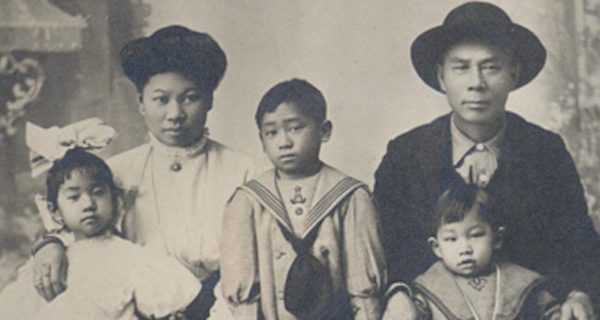Women’s History Month: Spotlight on the 1875 Page Act
 RHAP’s first #WomensHistoryMonth feature goes into detail about the 1875 Page Act- Exclusion of Chinese Women immigrants into the U.S.
RHAP’s first #WomensHistoryMonth feature goes into detail about the 1875 Page Act- Exclusion of Chinese Women immigrants into the U.S.
The Gold Rush of 1848 brought upon an influx of different groups of immigrants to the state of California, including migrants from China. Shortly following, growing xenophobia against this population rose and the United States took different measures to restrict immigration specifically because of their nationality and further defined how different groups could become or could not become American. The infamous Chinese Exclusion Act, barred all Chinese immigrants, specifically laborers from entering the United States, in what was initially meant to be a ten-year ban, but lasted until 1943. However, preceding this legislation was the lesser known 1875 Page Act, enacted 142 years ago on this day. The law restricted Chinese, Japanese and “Mongolian” contract laborers, women for the purpose of prostitution and felons.
This legislation is important in women’s history in the United States because of the country’s hypersexualization of Chinese women and denegration in the media. As it intensified, the U.S. took greater measures to prohibit them in the country. Chinese women were seen as a threat to the institution of marriage, and a danger to white males (even stigmatized as being unclean and giving white male children as young as 12 syphillis). Majority of the women had no affiliation with prostitution, as they immigrated for better lives and economic stability at the height of the Gold Rush boom in California. Since they were all viewed as prostitutes and immoral, Chinese women were separated from their families who migrated to the States prior to the Chinese Exclusion Act. Their reproductive rights were also criminalized based off of fear of populating the country with sub-human children, and or pollution of white purity.
Forcible separation between mothers and their children is a violation of reproductive justice because it limits family planning and development. It also illustrates that the state is in control of the reproductive body and polices their child-bearing rights.
[pictured below, a family affected by the strictest anti-Chinese legal measures, the Chinese Exclusion Act].
